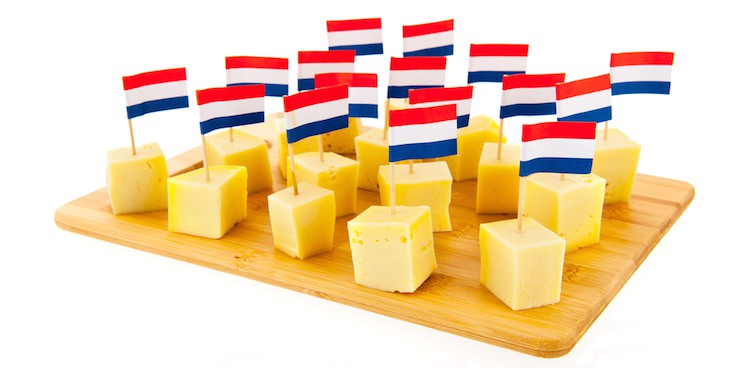
Why is American artisan cheese often more expensive than imported cheese? Seems a little counterintuitive, right? Cheeses like Taleggio, Brie, Delice de Bourgogne, and Manchego all had to travel thousands of miles to make it onto our counters, while the cheese from just down the road—much of the time—is significantly more expensive.ᅠIt’s a question that I am asked quite a bit as a cheesemonger, and I expect the same goes for my monger friends all around the country. So, in this piece I am going attempt to shed some light on this confusing situation.
Though there are a handful of reasons that European specialty cheese has us beat on the bottom line, it seems mostly to come down to the simple matter of production scale.ᅠThat Brie de Meaux sitting in the case next to the Green Hill from Thomasville, Georgia was probably made in a significantly larger facility, with much more high-tech equipment, and therefore much more efficiently and more cost effectively. I spoke with Mateo Kehler of Cellars at Jasper Hill on this subject and he offered that it’s almost unfair to compare the price of two such cheeses, considering that one was produced in a factory and one was produced in relatively small quantity on a family farm.ᅠIt’s just not comparing apples to apples.ᅠWhat makes this particularly confusing from a consumer standpoint is that these cheeses are sold right next to each other, both under the “specialty” cheese umbrella.ᅠIn a sense, they are both “specialty” cheeses, but they are not both small-batch artisan cheeses.ᅠTo further confuse the matter, many European factory cheese makersᅠare very skilled at producing really tasty cheeses on a large scale.ᅠSo it’s not often obvious to the consumer, from a flavor perspective, that they are eating factory cheese.
Most major European cheese-producing countries also have a much longer track record of cheese production than we do in the US.ᅠIn general, they just have a much more established and functioning cheese infrastructure than America does.ᅠTransportation alone accounts for a good percentage of the high cost of American artisan cheese.ᅠWe are moving relatively small amounts of cheese over a very large area of land.ᅠFrance, for example, has an established centralized cheese hub, and—for the most part—can get a wheel of cheese from one spot in theᅠ country to any other spot fairly painlessly and in no more than a day.ᅠOur small cheesemakers also bear a great many direct costs of operation with almost no government subsidies.ᅠMateo pointed out that 80% of US farm subsidies go to 10% of farms (this 10% is made up of the largest US farms).ᅠEuropean government subsidies are much more evenly distributed to include small, medium, and large scales of production.
I also spoke to Gail Hobbs-Page of Caromont Farm in Virginia on this subject.ᅠGail said that the financial burden of being a small cheesemaker in America right now is huge, and only getting bigger as regulations tighten in the industry.ᅠI think that this is an undeniable fact for almost every small cheesemaker in the country. It’s certainly not an industry one gets into to become rich.ᅠAnd I think that as cheesemongers, it is our duty to inform our customers of this, and assure them that when they pay $30 a pound for a piece of hand-crafted, delicious, small-batch American artisan cheese, their money is going to support something agriculturally and culturally important.ᅠFurthermore, the more we support and promote American cheese, the better infrastructure we build around the industry, and the lower prices become.ᅠIt’s our responsibility as cheese professionals to support our small dairies and cheesemakers now, so thatᅠone day our cheese culture will be just as rich and ingrained into our daily lives as that of any of the great European cheese producing countries.
Justin Trosclair has spent nearly a decade in the cheese business. He got his start as a cheese buyer for Whole Foods Market, spent three years making cheese with Haystack Mountain Goat Dairy, and is now the General Manager at St. James Cheese Company in New Orleans. Heᅠalso won the Cheesemonger Invitational in 2013.



